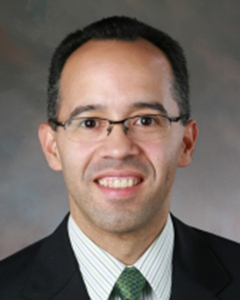Why You Should Discuss Your Sex Life With Your Doctor
About 4 percent of Americans identify as lesbian, gay, bisexual or transgender, but according to a new study these Americans may not be getting comprehensive care because doctors may not ask about their sexual orientation.
In the study, published in JAMA Internal Medicine, about 80 percent of doctors surveyed said they thought patients wouldn’t want to reveal their sexual orientation, while only 10 percent of patients said they actually would decline to do so.
The study comes after a growing push to have health care providers make this a routine part of their interactions with patients and a requirement for electronic health records to contain this information. Asking this question of patients is critical because it helps doctors and other medical providers understand the whole patient and his or her health care needs. It’s no different than when we ask patients about their gender, ethnicity, whether they’re married or single or about their previous sexual and medical history. These details help us tailor care to each patient. From a population health perspective, it’s also important because it helps us pinpoint health disparities between this group and the general population and effectively address them in ways that can improve the health of gay, lesbian, bisexual and transgender patients.
"This is important information that patients feel is relevant to their health, and in most cases, they want and expect their health care providers to ask them about it," said Dr. Adil Haider of Brigham and Women’s Hospital in Boston, one of the study’s authors.
Researchers say normalizing questions about sexual orientation during patient interactions can improve care, but that these questions sometimes can be fraught with potential pitfalls such as “incorrect assumptions about partners, misuse of correct pronouns or unconscious bias that may affect clinical care.” For this reason, it’s important that health care providers receive more competency training to learn how best to frame these questions and talk to LGBT patients. Though more medical schools are working to educate students on how sexual orientation and gender identity affect patient care, the study’s authors also suggest a deeper effort to create education and training programs and guidelines for health care providers on how best to serve this patient population.
Data is powerful tool that we’ve historically used to improve patient care, but without asking the right questions, we’ll never get the right data. There’s always been some social discomfort with talking about sexual orientation, but in a health care setting we must leave that discomfort at the door to get patients the best possible care. The responsibility shouldn’t be on patients to volunteer information about their sexual orientation — we should openly ask them about this as part of the patient intake process and during their appointment. We also must create an environment where patients feel comfortable sharing these details and know that their privacy will be protected.
We Build Relationships
We believe that maintaining a healthy lifestyle is the key to living a longer, healthier life. Orlando Health Physicians strive to build a relationship with each patient. Request an appointment with one of our primary care physicians with offices located throughout Central Florida.
Schedule an Appointment







